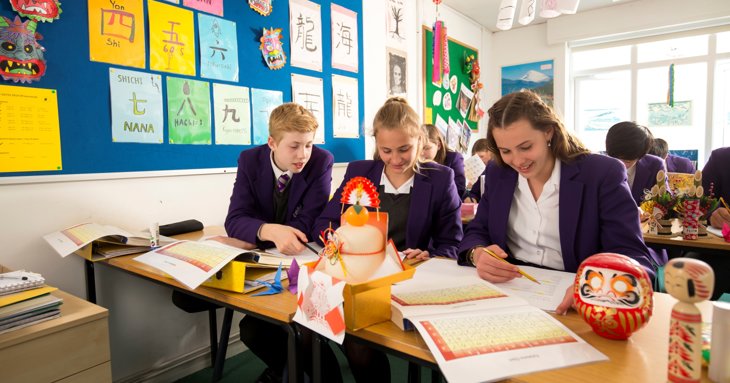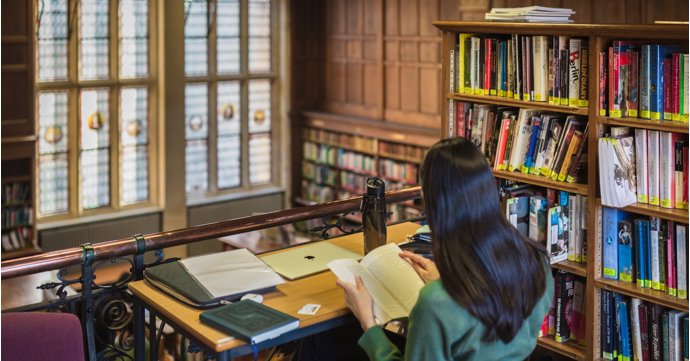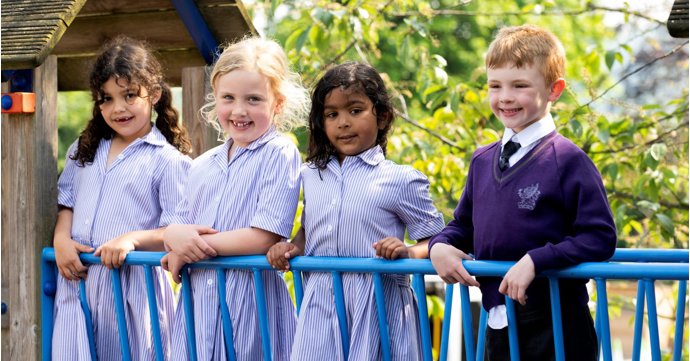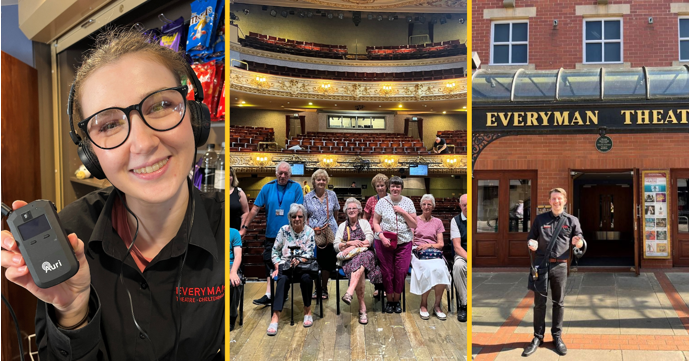Most parents are familiar with league tables to measure a school’s performance, but academic results alone aren’t always the best way decide which school is best for a child.
SoGlos spoke to Wycliffe College about what ‘value-added’ means in education and how it could be a better way to understand what a school has to offer.
About the expert – Sean Dunne from Wycliffe College

Wycliffe College deputy head, Sean Dunne, takes the lead on academic matters for the school, including curriculum planning, performance and teaching standards. An experienced teacher, Sean is passionate about individualised learning to help all students succeed.
Wycliffe College is a day and boarding school providing an excellent education and a wide range of extra-curricular activities to its students on its beautiful campus in the Cotswolds, just 90 minutes from London.
What does value-added mean in education?
It’s a term used to describe how much additional learning, experience or development that a school offers beyond the average.
How is value-added measured?
Measuring added value to academic learning is complex, but mainly comes down to this: how much progress has a child made compared to their starting point, and compared with where they should be?
Using data from thousands of tests over decades, it is possible to judge how well each group of children are likely to perform based on their test scores at the start of a course. When they finish, results can be compared with those expectations. If they have done better than expected, value has been added, if not, then value has not been added.
It doesn’t matter if a child is Grade 9 or 3, A* or E, it is about how much has been gained that matters, and which provides a way for a school to see if they have added value to their learning. It is a way to understand how, perhaps, for some pupils, a Grade 5 or C is actually a really good performance.
Are academic results still a good indicator of the quality of education in a school?
Raw results are one method, of course. National newspapers are full of league tables claiming to show the ‘best’ school based on results. But, if a school is academically selective, then of course they will (or should) sit at the top of those tables. But what about a school that does not select on the basis of academic ability but teaches pupils of all standards? If we aren‘t comparing like with like, then we aren’t undertaking effective evaluation of either.
At Wycliffe, for example, pupils are admitted who would not necessarily secure a place at a grammar school, but we can still understand the progress they make. On average, A level pupils’ progress is among the top 4 per cent of the country, so we are able to show good levels of attainment even though we include pupils of all abilities. At GCSE we have scores that have consistently put us in the bracket of schools described as offering “well above average” progress, taking account of all pupils – not just the top performers. And, just to be certain that we are not letting down the most able, we also compare grammar school performance against that of our pupils who could have gone selective – and the results are consistently excellent.
What are the benefits of measuring students’ progress rather than just academic results?
It allows people to compare like with like; otherwise it would be like comparing apples to pears. Value-added analysis shows whether progress is habitually made, rather than relying on raw tables that can say as much about the pupil intake as they do about the school itself. Only measuring progress can show a school’s ability to develop learning regardless of the child’s ability.
How does Wycliffe College add value for its pupils?
On the one hand at Wycliffe College it’s about offering a huge range of sporting, cultural and extracurricular opportunities in a safe and nurturing environment, to match individual aspiration and potential. We aim to develop the whole person with leadership opportunities, exposure to the notion of global citizenship and by encouraging innovation and independence.
On the other hand, academically, those opportunities arise via a wide range of courses and expert teaching. We ensure our teachers are specialists in their fields and in education, understanding and implementing the best evidence-informed practice so that pupils in small classes get the individual attention they need. The wrap-around pastoral House system ensures close attention to pupils’ performance as well as their welfare and needs.
What should prospective parents look for when selecting a school?
Does it suit their child and them? Can it match the family’s ethos and lifestyle? Will it provide the support that all teenagers need to negotiate the complexities and challenges of life? Will their child get the opportunities to realise their potential, in and out of the classroom? How big are class sizes? How effective is the individual support?






.jpg?width=690&height=361&rmode=pad&bgcolor=ffffff&quality=85)














